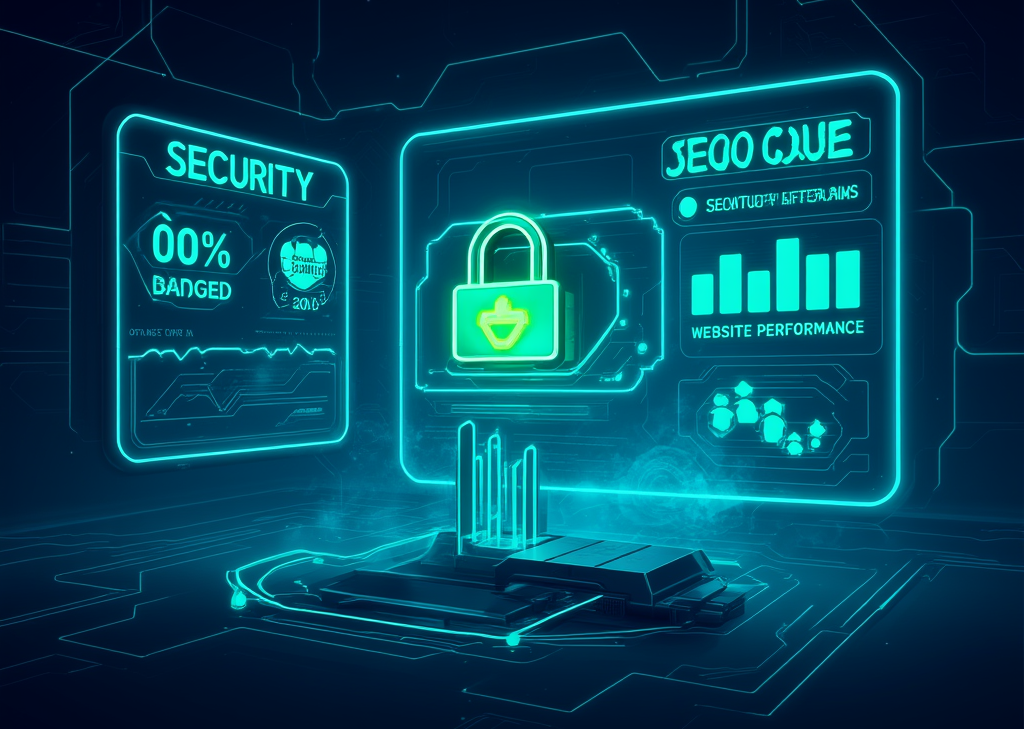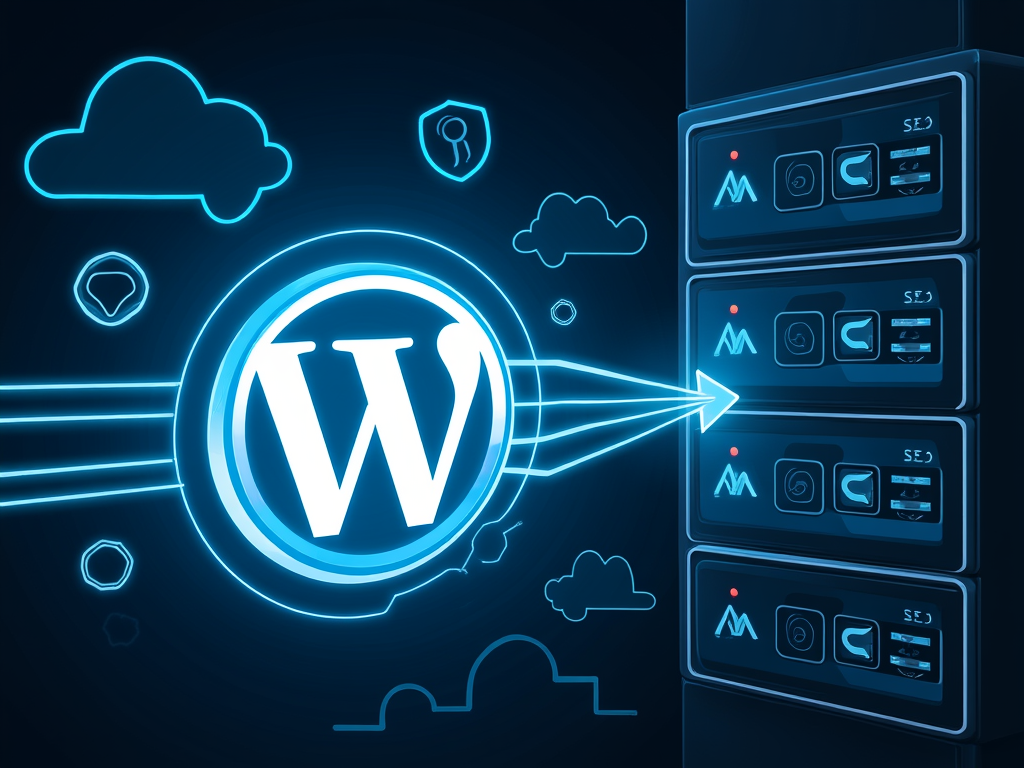What Is Secure Hosting and Why Does It Matter?
Introduction
Secure hosting is more than just a technical necessity; it's the foundation of a trustworthy online presence. In an age where data breaches and cyber threats loom constantly, knowing that your website is backed by robust security measures brings unparalleled peace of mind. Imagine the sigh of relief as you click “publish,” aware that your data, your customers’ information, and your reputation are well-protected. This article dives deep into what secure hosting truly means and why every website owner should grasp its significance.
What Is Secure Hosting?
Understanding Secure Hosting
At its core, secure hosting is a specialized web hosting service that prioritizes the safeguarding of your website against a multitude of cyber threats. Think of it as a fortified castle with watchtowers and drawbridges. This kind of hosting goes beyond basic service offerings by incorporating advanced security measures designed to shield your digital assets. Here are some defining features:
- SSL/TLS Certificates: These encrypt data transmitted between users and your website, ensuring that sensitive information like credit card numbers and personal details remain confidential.
- Firewalls: Positioned like sentinels, firewalls monitor traffic and filter suspicious activity to prevent unauthorized access to your site.
- Anti-DDoS Protection: Just as a sudden flood can overwhelm a landscape, distributed denial-of-service attacks can drown websites with excessive traffic. This protection ensures your site remains operational even under heavy strain.
- Malware Detection and Removal: Automated tools scan for malicious software, cleaning out intruders that could tarnish your website’s integrity.
- Regular Automated Backups: In the event of a disaster—be it a snoopy hacker or a simple server error—these backups allow you to recover your data swiftly, much like having a safety net beneath your tightrope walk.
- Real-Time Network Monitoring: Continuous oversight ensures that any abnormal activities are spotted and addressed before they escalate into full-blown disasters.
- Dedicated Technical Support: Picture having a team of experts on call whenever you face a hurdle. This support minimizes downtime and quickly resolves any potential security breaches or technical snafus.
Why These Features Matter
Each of the above features is crucial, serving not just as individual elements but as interlocking parts of a well-oiled security machine. Encryption (SSL/TLS) protects sensitive information, while firewalls and DDoS protection keep intruders at bay. The combination of backups and recovery tools guarantees the safety of your data, while technical support gives you the reassurance that help is just a shout away.
The Importance of Secure Hosting
Protection Against Cyber Attacks
Cyber threats are rampant. A significant increase in malware infections can cripple not just your website but also the trust your users place in you. For instance, statistics reveal that high-severity malware infections doubled from 2020 to 2021, impacting 26% of websites surveyed. Imagine the damage: lost revenue, shattered reputations, and the anguish of trying to recover your hard work from the wreckage of a cyber breach.
Data Privacy and Legal Compliance
Adhering to data protection laws is not merely a precaution; it’s mandatory. Regulations like GDPR in Europe and CCPA in California place stringent requirements on how businesses manage personal data. Secure hosting providers step in here, equipping organizations with the necessary tools to comply and safeguard sensitive information, thus avoiding hefty fines and irreplaceable damage to their reputations.
SEO and Customer Trust
Google favors websites that signal security through HTTPS encryption and safety badges. This not only bolsters your website’s rankings in search results but also instills confidence in visitors. A secure website can often be the difference between a one-time visitor and a loyal customer. Imagine a first-time user landing on your site—how would they feel knowing their information is safe?
Improved Website Performance and Uptime
It’s not all about defense; secure hosting can enhance performance too. Optimized security measures mean reliability, ensuring that your site remains available and responsive even during traffic spikes, whether from marketing campaigns or unexpected surges in interest. This kind of dependability is essential for businesses that thrive on consistent access and user engagement.
Business Continuity and Disaster Recovery
In the unpredictable world of online business, secure hosting provides a lifeline during crises. Regular backups, along with hosting in secure data centers, protect your business against technical failures and natural disasters. This assurance that operations can swiftly resume, even in the face of adversity, is invaluable.
Additional Practical Tips for Choosing Secure Hosting
Selecting the right hosting provider can feel like a labyrinthine journey. To enhance security, consider these pivotal factors:
- Evaluate different hosting types. A Virtual Private Server (VPS) solution is often more secure than shared hosting because it isolates resources.
- Look for guarantees of automatic software updates to fend off potential vulnerabilities.
- Ensure that the provider offers monitoring and alert systems that can pinpoint anomalies.
- Verify robust user access controls, including mandatory strong passwords and multi-factor authentication.
- Seek transparency in security policies, ensuring the host openly shares their security protocols and incident response plans.
In the world of secure hosting, understanding the depths of protection available and why it matters is your best defense against tomorrow’s cyber threats.
BEST OFFERS:
Do you want to create your own company website or create your own online business on the Internet?
– WEB HOSTING
– DOMAIN REGISTRATION
– WEB DEVELOPMENT
– SITE BUILDER



Choosing the Right Secure Hosting Provider
Evaluating Your Options
The search for a reliable secure hosting provider can feel daunting, especially with the plethora of options available. However, honing in on specific criteria can help simplify the process and guide your decision-making. Here’s what to watch for:
- Reputation and Trustworthiness: Look for reviews and feedback from current and past customers. Provider transparency about security measures is a good sign.
- Technical Support Quality: Ask about the availability and responsiveness of technical support. Do they provide 24/7 assistance? Consider conducting a test by reaching out with questions before making a decision.
- Security Certifications: Check if the provider holds relevant security certifications demonstrating their commitment to maintaining high standards such as PCI DSS compliance for handling credit card transactions.
- Scalability: As your website grows, your hosting needs may change. A provider that offers a variety of hosting plans will help accommodate future growth without disrupting your service.
The Role of Performance in Secure Hosting
Integration of security features shouldn’t impede the performance of your website. A reliable hosting provider will ensure that security measures are implemented without sacrificing speed or user experience. After all, a slow-loading website can drive customers away faster than any security scare.
You might want to explore content delivery networks (CDNs) as part of the hosting solution. A CDN enhances security and bolsters performance by distributing your content across various locations, reducing latency and improving load times.
The Cost of Secure Hosting
When considering secure hosting, cost should be weighed against the benefits. While it's tempting to opt for the cheapest option, remember that security is an investment. The financial implications of a security breach—lost data, diminished trust, and potential legal repercussions—often far exceed the costs associated with quality secure hosting.
Understanding Pricing Models
Most hosting providers offer several pricing tiers, often linked to the level of security and additional features provided. Look for models that align with your specific needs:
- Shared Hosting: This is generally the most affordable but can expose you to risks due to shared resources. It's a short-term solution for small businesses.
- VPS Hosting: Although more expensive than shared options, it offers better security and performance because resources aren’t shared with other users.
- Dedicated Hosting: This is the premium option, providing full control and robust security, suitable for large businesses handling sensitive customer data.
Ongoing Security Measures and Maintenance
Choosing a secure hosting provider is just the beginning of your journey. Maintaining that security requires consistent vigilance. Here are some key practices to embrace:
Routine Updates and Maintenance
Ensure your website’s software, plugins, and themes are regularly updated. Outdated components are prime targets for malware and hackers. Opt for a hosting provider that offers automatic updates to alleviate this responsibility.
Regular Security Audits
Consider scheduling regular security audits with your hosting provider. These assessments can uncover vulnerabilities and provide insights into how to bolster your site’s defenses.
Educating Your Team
Cybersecurity is a team effort. Host training sessions to educate your staff on security best practices because even the most secure hosting cannot overcome human error.
Final Thoughts
Investing in secure hosting isn’t just about protection; it is about building a trustworthy relationship with your audience. In today's digital landscape, where information travels at lightning speed, customers are becoming increasingly aware of the threats lurking in cyberspace. By establishing a secure foundation, you're not only safeguarding your data but also fostering a sense of confidence among your users.
Your choice of a secure hosting provider can be the deciding factor between chaos and calm in your digital operations. As threats evolve, so too must your defenses.
Secure hosting lays the pathway to a resilient online presence—one that can adapt, withstand, and thrive in the face of adversity. By prioritizing strong security measures, selecting a reputable provider, and implementing ongoing best practices, you pave the way for success in an increasingly interconnected world.
For a deeper dive into secure hosting practices, check out these helpful resources through engaging video content:
- Understanding Web Hosting Security Explained (Video)
- Top Tips for Choosing a Secure Web Host (Video)
- Cybersecurity Basics for Business Owners (Video)
References
[1] https://example.com/secure-hosting-1
[2] https://example.com/cybersecurity-facts
[3] https://example.com/data-privacy
[4] https://example.com/web-hosting-guide
[5] https://example.com/security-measures
[6] https://example.com/history-of-secure-hosting
[7] https://example.com/the-importance-of-ssl
FINDDOMAIN.GE (Internet services LLC) is a very interesting and rapidly developing IT company. The main directions are: web development, domain and web hosting. It also offers clients sub-services and outsourcing related to the main services.
BEST OFFERS:
Do you want to create your own company website or create your own online business on the Internet?
– WEB HOSTING
– DOMAIN REGISTRATION
– WEB DEVELOPMENT
– SITE BUILDER









Leave feedback about this